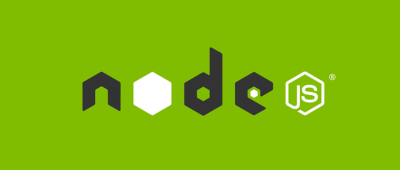🌐 NodeJS Full Stack
Build scalable web applications using Node.js, Express, MongoDB, and dynamic front-end technologies.
FULL STACK


🕒 Course Duration: 3 Months
🎯 Target Audience:
Final year engineering students and freshers
Backend developers and aspiring full stack developers
Professionals transitioning into web development
Anyone looking to build scalable, real-time web applications
📘 Course Overview:
This hands-on training covers everything from Node.js fundamentals to building production-ready REST APIs and full stack web applications using Express.js, MongoDB/MySQL, authentication, security, and cloud deployment. Learn how to manage data, build APIs, and integrate third-party services like a real-world developer.
📚 Course Modules & Topics Covered
🔹 1. Introduction to Node.js
Node.js vs Traditional Web Servers
Installing Node & Environment Setup
Event-Driven Architecture & Node.js Process Object
🔹 2. Core Concepts of Node.js
Single-threaded Non-blocking I/O
Callbacks, Promises, and Async/Await
Understanding the Event Loop
🔹 3. Modules & Package Management
Built-in Modules (fs, path, http)
Creating Custom Modules
Using npm and third-party libraries
🔹 4. File System Operations
Read/Write Files
File Streams & Buffering
Error Handling in File I/O
🔹 5. HTTP & Web Servers
Creating HTTP Servers
Request & Response Handling
Serving Static Files
🔹 6. Express.js Framework
Setting Up Express Projects
Routing & Middleware
Serving Static Content
Request Params, Query Strings
🔹 7. Templating Engines (Optional)
Rendering Views with EJS, Pug, or Handlebars
Passing Data to Templates
🔹 8. Routing in Express
RESTful Routes (GET, POST, PUT, DELETE)
Express Router
Handling 404 and Error Routes
🔹 9. Forms & Request Handling
Form Submission
Body Parsing (body-parser)
URL Encoded vs JSON Payloads
Input Validation (basic)
🔹 10. Databases (SQL & NoSQL)
SQL (MySQL/PostgreSQL) with Sequelize
NoSQL (MongoDB) with Mongoose
Performing CRUD Operations
Environment Config (.env) for Credentials
🔹 11. RESTful API Development
Creating REST APIs
Route Controllers & JSON Responses
Testing APIs using Postman
HTTP Methods & Status Codes
🔹 12. Authentication & Authorization
JWT-Based Authentication
Role-Based Access Control
Sessions & Cookies
Securing Routes with Middleware
🔹 13. Advanced Middleware in Express
Custom Middleware
Third-party Middleware (morgan, cors, helmet)
Error Handling Middleware
🔹 14. API Integration & Consumption
Fetching Data from External APIs
Using axios or node-fetch
Error Handling & Retry Mechanisms
🔹 15. Security Essentials
Security Headers (helmet)
HTTPS Overview
Input Sanitization & XSS Protection
Password Hashing with bcrypt
🔹 16. Error Handling & Logging
try/catch & Async Error Handling
Global Error Handlers
Logging with Winston & Morgan
🔹 17. Streams, Buffers & Events
Streams: Readable/Writable/Transform
Working with Binary Data
Event Emitter API & Custom Events
🔹 18. Deployment & Production Readiness
Preparing Production Builds
Process Management with PM2
Deployment on Heroku, AWS, or Digital Ocean
Using .env Files for Config & Secrets
✅ Front End: HTML + CSS + Javascript + React
✅ Outcome:
By the end of this training, learners will have the ability to build and deploy scalable RESTful APIs, manage real-time server logic, and integrate backend systems using Node.js and Express — making them job-ready for roles like Node.js Developer, Backend Developer, or Full Stack Developer.


